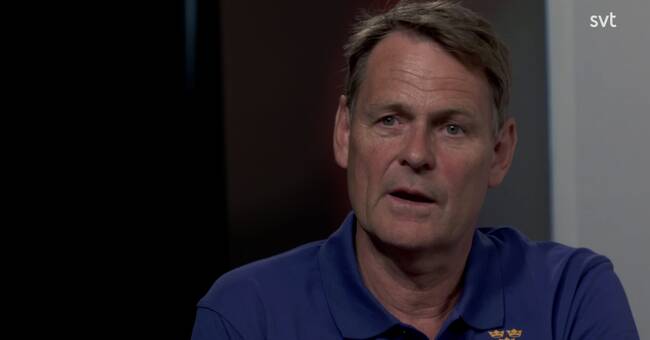The international qualifying limits for competing in this summer's Olympic competitions in marathons are 2.11.30 on the men's side, and 2.29.30 on the women's side - but SOK has set so-called nomination times of 2.08.00 and 2.25.00, which has been criticized by both the Swedish runners as world star Mo Farah.
When SVT Sport is in contact with Peter Reinebo, he opens up that there may be Swedish participation in the marathon races in the Tokyo Olympics this summer, even if they would not be able to meet the times set by SOK.
- There will be an overall assessment for the selection.
The ranking is one thing, results in specific competitions another thing and which they have beaten a third and the development curve a fourth assessment we will make, he says, and continues:
- So in mid-April, we hope that we can take out some or more marathon runners.
So we have to look at this time.
An overall assessment, you say. Do you mean then that a good result in a half marathon, like David Nilsson who in Djibouti ran well and beat several Olympic-ready marathon runners, could give an Olympic place?
- A half marathon can definitely be strengthening, if it is a good result.
And good results can, for example, be that you beat well-qualified assets from other countries, absolutely.
Agree with Mo Farah
The British world star Mo Farah believes that it is important for young people to see compatriots compete in the Olympics, and that SOK's tough top eight requirements can therefore be counterproductive.
Peter Reinebo says that he understands Farah's argument about the importance of young Swedes being able to follow blue-yellow runners.
- I completely agree with that, and the future criterion provides opportunities for active people such as the upcoming Olympics and top results there, he says, and continues:
- And of course it is also about younger people, who see the young active people who are investing in the future.
So I agree.
"Does not have qualifying limits"
Reinebo explains that SOK's top eight criteria (that the athletes must have shown that they can compete for a top eight ranking) apply to all sports and therefore must ensure justice.
But aren't certain sports, such as marathons, hit harder by tough qualifying limits as they compete in very few races per year, which in turn can be greatly affected by external conditions such as the weather?
- I would say the opposite.
Firstly, we do not have qualifying limits in any sport, but there are nomination levels, which are based on what the world ranking looks like and how the development has been in that branch.
- But it's not like in the European Championships or the World Cup where you are selected if you pass a certain limit.
But we have a level that is read based on an opportunity to compete for a top eight level.
- The international qualifiers look very different in different sports.
So a top eight level that we have ensures that the sports level in the Olympic team is approximately equal.
It is a weighted assessment.

